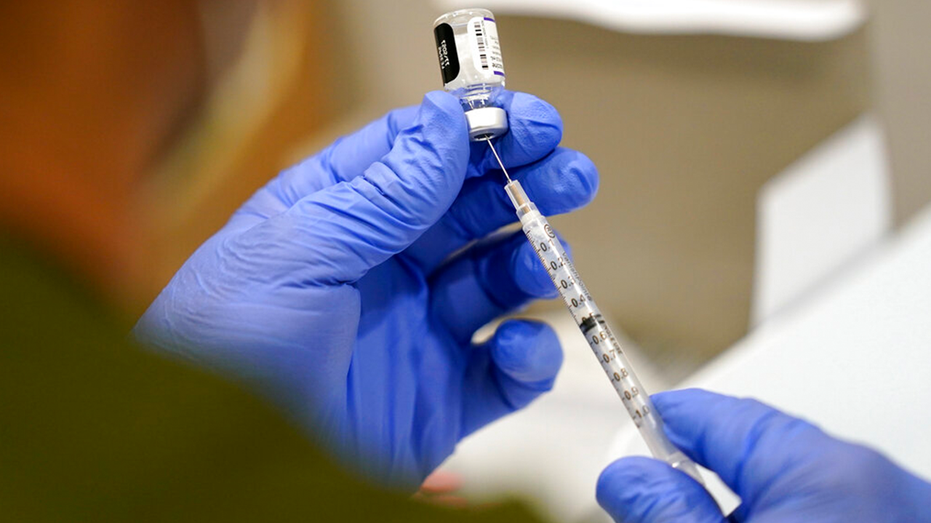In a significant legal development, a North Carolina court has ruled that a family can proceed with a lawsuit against a healthcare provider for administering a COVID-19 vaccine to a minor without the requisite consent. The court’s decision has sparked discussions around parental rights, medical consent, and public health policies in the context of the pandemic.
The case centers around the family of a 15-year-old who received the COVID-19 vaccination at a local health clinic. According to the family’s claim, they had not provided consent for the vaccine, which they argue should have been legally required before any medical intervention was performed on their child. The family asserts that they were not informed about the vaccine being administered and that they had not authorized it, leading them to seek legal recourse.
The court’s ruling allows the family to move forward with their lawsuit and raises important questions about the practices and protocols surrounding vaccine administration, especially in pediatric cases. Various legal experts and stakeholders have responded to the verdict, emphasizing the implications this ruling may have on how healthcare providers obtain consent moving forward, particularly as vaccination campaigns continue to unfold in many parts of the country.
This ruling is particularly notable in the broader context of the COVID-19 pandemic, which has prompted a surge in vaccination initiatives aimed at curbing the spread of the virus. Public health officials have often advocated for swift immunization efforts, targeting eligible populations, including children, in hopes of achieving widespread immunity.
The events leading to the lawsuit occurred during mass vaccination drives aimed at increasing the community’s defenses against COVID-19 infection rates. As authorities encouraged vaccinations, some healthcare providers accelerated their efforts to administer vaccines to younger populations amid reports of rising cases among adolescents. While the urgency of vaccination campaigns is undeniable, this case highlights a crucial tension between public health measures and individual rights.
During the court proceedings, the family’s attorney contended that consent is a fundamental principle in medical ethics and law. He argued that the administration of the vaccine without consent could lead to serious legal consequences for healthcare providers and asserted that individuals and families have the right to make informed decisions regarding medical interventions, especially for minors.
The implications of unauthorized medical procedures extend beyond this particular case. Critics have pointed out that hasty vaccination efforts might lead to lapses in protocols designed to protect patients’ rights. Many healthcare systems have policies requiring that informed consent be documented prior to administering any vaccine, particularly to children, who must be deemed to have parental or guardian approval.
As discussions about the ethics of medical consent continue, advocates for public health emphasize the importance of vaccination in preventing COVID-19. Vaccines have played a major role in reducing the severity of the illness, hospitalizations, and deaths since their availability. As such, health officials often assert that the benefits of vaccination far outweigh the risks associated with administering these vaccines.
The court’s ruling, therefore, emphasizes the need for balance between public health imperatives and the rights of individuals and families to make informed decisions. Parents often face a complex dilemma when it comes to vaccinating their children, particularly against a backdrop of misinformation and varying opinions on the safety and efficacy of vaccines.
In response to the controversy, numerous health organizations have reiterated the importance of clear communication regarding vaccine protocols and the necessity of parental consent. They suggest that health agencies should enhance efforts to educate families about the vaccination process and ensure that consent procedures are transparently communicated and upheld.
This court ruling reiterates a vital point: that parents must be fully engaged and informed when it comes to their children’s health decisions. The pandemic has created unprecedented challenges for families navigating health decisions. This ruling may be a compelling reminder for healthcare institutions to ensure they respect family rights while simultaneously promoting public health.
While some may view the case as a challenge to vaccination efforts, others caution that it should be seen as a reinforcement of ethical medical practices that have long governed healthcare provision. The statement underscoring the right to informed consent steers the discussion toward maintaining trust in healthcare providers and preventing potential legal ramifications stemming from rushed or misunderstood medical engagements.
As various states continue to grapple with vaccination strategies and mandates related to COVID-19, this ruling from North Carolina could serve as a precedent for how similar cases are adjudicated in the future. Legal analysts predict that this decision may influence how parents, healthcare providers, and policymakers engage in discussions around vaccine distribution and consent requirements in pediatric cases.
Furthermore, while courts across the United States are tasked with interpreting laws related to medical consent and public health, this case may incite further scrutiny over legislation pertaining to vaccinations aimed at minors. Policymakers may need to revisit existing laws to ensure clarity and uniformity across different jurisdictions while advocating for the health needs of populations.
As the nation moves toward navigating the next phases of the pandemic, this court ruling serves as a reminder of the delicate balance that must be struck between individual rights and community health. Stakeholders in the healthcare sector are expected to closely monitor the outcomes of the lawsuit while reflecting on the broader implications for future health initiatives and legal frameworks that govern medical consent.
As the legal battle unfolds, it highlights an essential dialogue on the ethical responsibilities shared by healthcare providers, parents, and governments in safeguarding public health. The ruling is likely to resonate beyond the state of North Carolina, prompting discussions across the nation regarding how best to address the challenges posed by both the pandemic and approaches to children’s healthcare and vaccination.
Overall, this North Carolina family’s legal challenge and the court’s ruling underscore the complexities of navigating health rights in the era of COVID-19. It reflects a burgeoning need for ongoing dialogue that honors both public health objectives and the imperative to protect individual autonomy and rights in the healthcare realm.
































